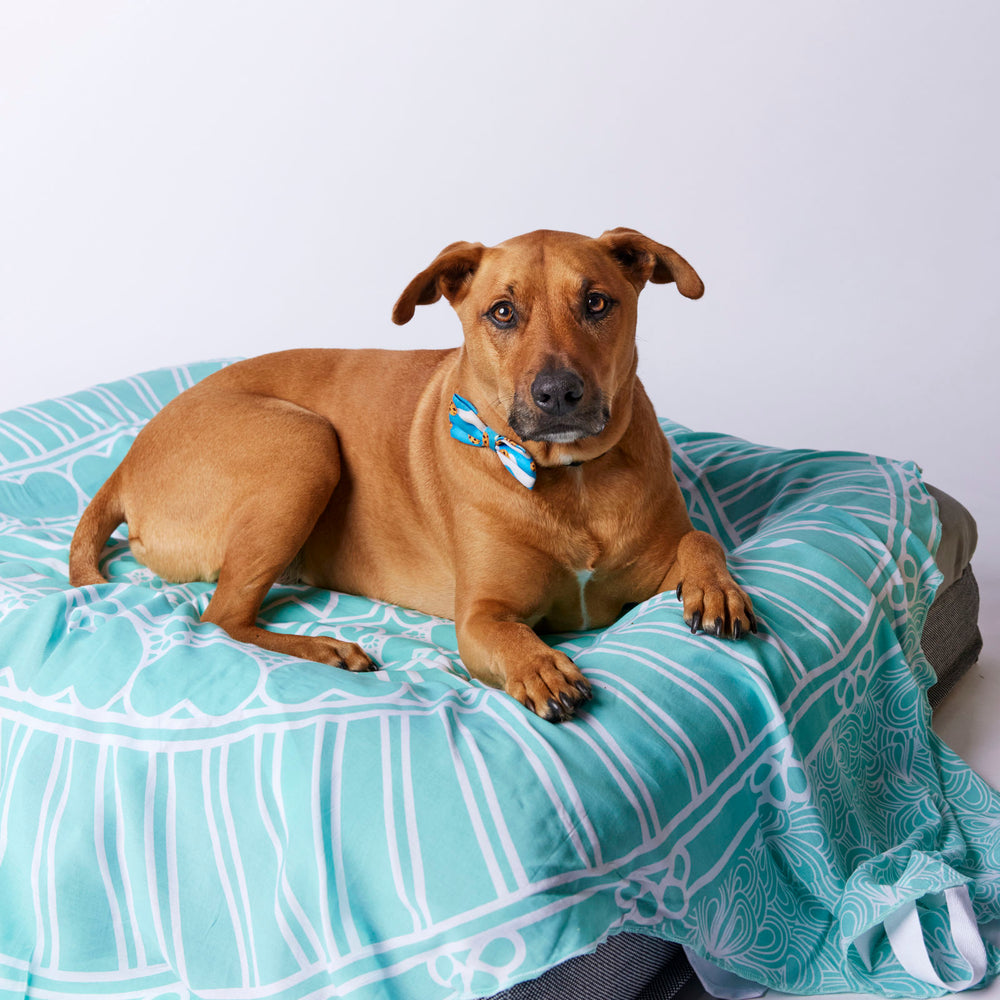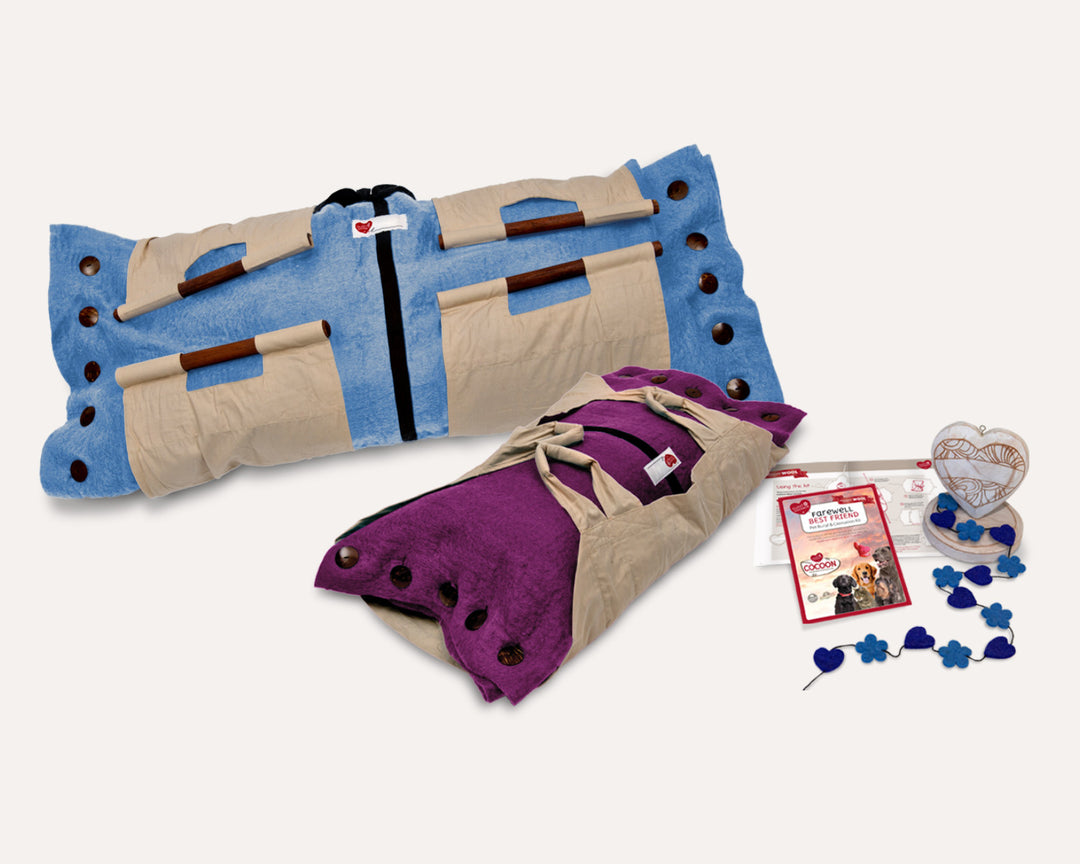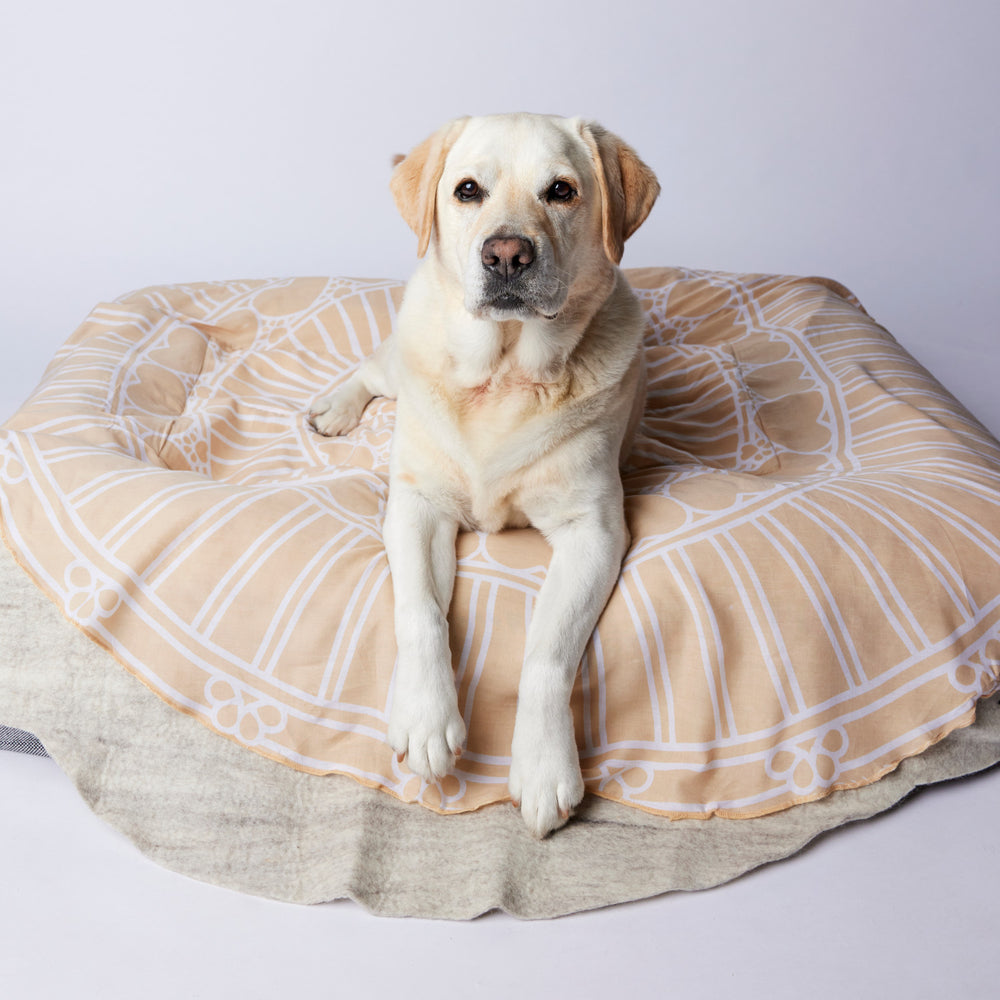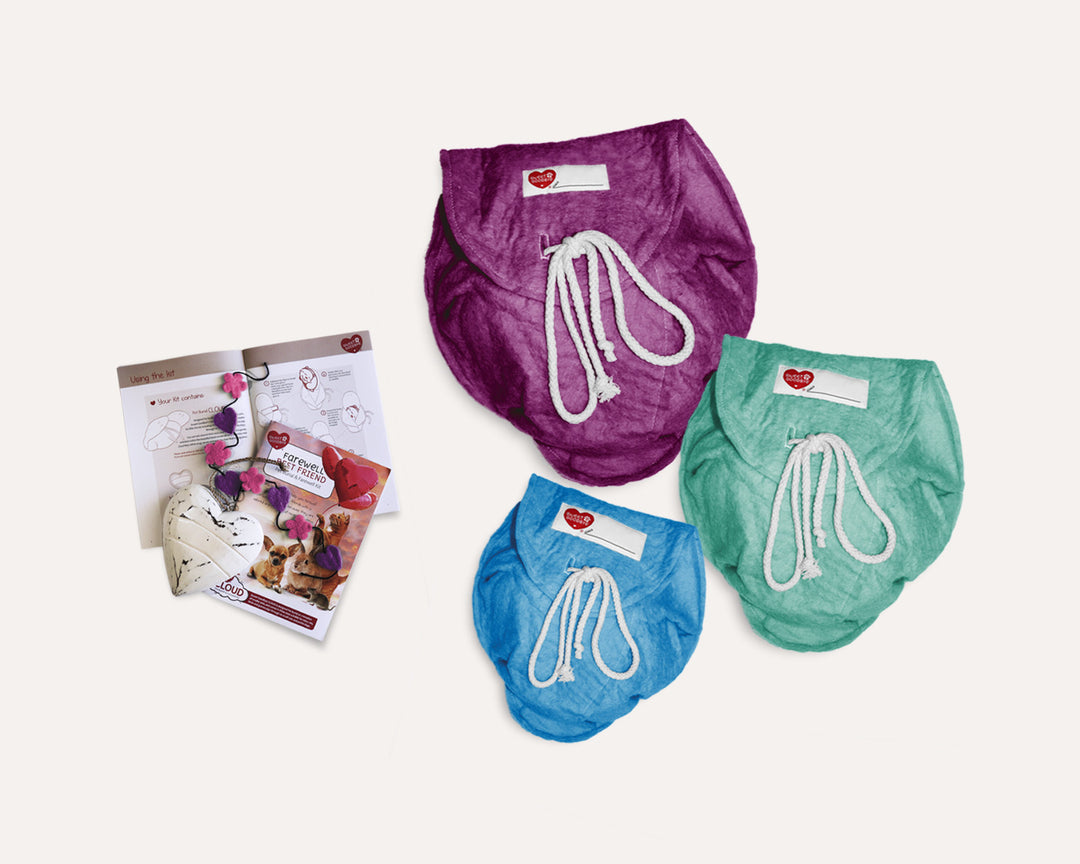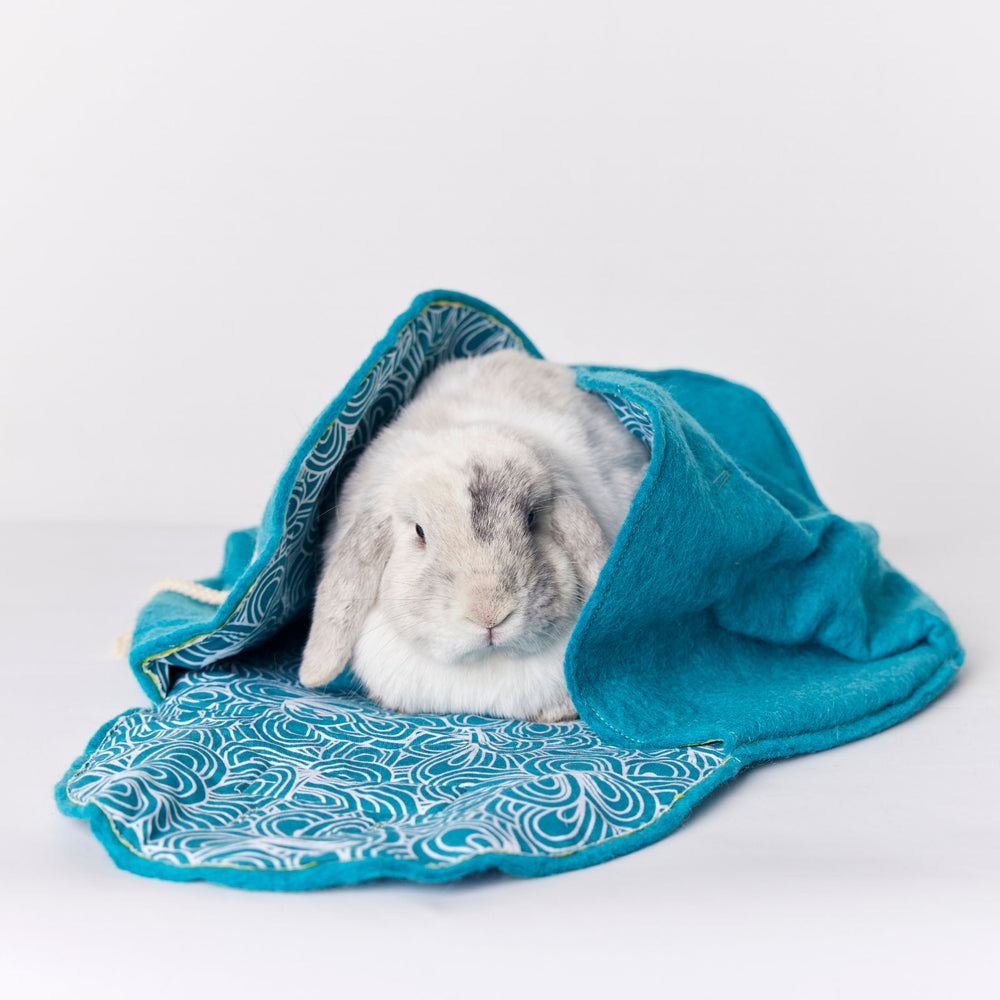The Impact of Ageing on Senior Pet Immunity: Boosting Their Defenses

As our beloved pets grow older, we notice more than just their silvering fur or their slower pace. Like us, their immune system starts to show signs of wear and tear, which can leave them more vulnerable to infections, illnesses, and chronic conditions. As pet owners, it's essential to recognise the changes aging brings and understand how we can help support their immune systems to keep them healthy and comfortable in their senior years.
Much like humans, senior pets require extra attention when it comes to maintaining their health. Their bodies, while filled with wisdom and experience, may not fight off illness as efficiently as they once did. But don’t worry, there’s a lot we can do to boost their immunity and ensure they live their golden years as comfortably as possible. Let's dive into the impact ageing has on their immune systems and explore practical ways to help boost their defenses.
Understanding the Ageing Immune System in Pets
Just as in humans, pets experience a gradual decline in immune function as they age. This process, known as immunosenescence, affects how their bodies respond to illness and infection. The immune system becomes less effective at detecting and defending against harmful invaders, like viruses, bacteria, and fungi. This can lead to an increased susceptibility to infections, autoimmune diseases, and even cancer.
In younger pets, the immune system operates at full capacity, swiftly identifying threats and mounting a response. However, as pets age, their ability to recognise and react to these threats diminishes. This decline is due to several factors:
-
Reduced production of immune cells: The thymus gland, which plays a critical role in producing T-cells (key players in immune responses), shrinks with age, leading to fewer immune cells in circulation.
-
Decreased ability to produce antibodies: Older pets have a reduced ability to produce antibodies in response to vaccines and infections, leaving them more susceptible to disease.
-
Chronic inflammation: Long-term, low-grade inflammation (often referred to as "inflamm-aging") is common in older pets. This chronic inflammation can weaken their immune response and contribute to the development of other health issues.
All of these factors combined make it increasingly important for us to take steps to protect and support our senior pets' immune systems.
Signs That Your Senior Pet’s Immunity May Be Declining
As responsible pet owners, it’s important to stay vigilant and recognise the signs that your senior pet’s immune system may be underperforming. Some common symptoms of a weakened immune system in older pets include:
-
Frequent infections: If your pet is suffering from recurrent ear infections, skin issues, or respiratory infections, it could indicate that their immune system is struggling to fend off germs.
-
Slower recovery from illness: Senior pets tend to take longer to recover from injuries, surgery, or illness. If your pet seems to bounce back more slowly than usual, it might be a sign of immune decline.
-
Changes in behaviour or energy levels: A sudden drop in energy, lethargy, or changes in appetite can signal that your pet is dealing with an infection or immune-related health issues.
-
Chronic conditions or skin problems: Older pets are more prone to developing chronic conditions like arthritis, kidney disease, or allergies. They may also experience skin problems such as hot spots or dandruff due to a weakened immune defense.
If you notice any of these signs, it’s important to consult your veterinarian for a full health assessment. Early intervention can often make a significant difference in managing your pet’s health and immunity.
Boosting Your Senior Pet’s Immune System
While ageing is a natural process, there are many ways to help support and strengthen your pet's immune system. Here are some effective strategies to help keep your senior pet healthy and happy:
1. Nutrition: A Strong Foundation for Health
Nutrition plays a crucial role in maintaining a strong immune system. A balanced, high-quality diet filled with essential nutrients is key to supporting your pet's immune function. As pets age, their nutritional needs change, and they may require diets formulated for senior pets.
-
Antioxidants: Foods rich in antioxidants, such as vitamins C and E, can help neutralise free radicals and reduce inflammation. Antioxidants support overall immune function and slow down the aging process of the immune system.
-
Omega-3 fatty acids: Omega-3s, found in fish oils or flaxseeds, have anti-inflammatory properties and are beneficial for brain health, joint health, and immune function.
-
High-quality protein: As pets age, their bodies require more protein to support muscle maintenance and immune function. Look for senior pet food formulas that contain easily digestible protein sources, such as chicken, turkey, or fish.
Your veterinarian can recommend specific foods or supplements that suit your pet’s individual needs, helping you find the right balance of nutrients to support their immune system.
2. Regular Vet Check-ups: Early Detection is Key
Regular veterinary check-ups are critical for senior pets. As their immune system becomes more compromised, it’s important to stay on top of any changes in their health. Routine blood tests, urine tests, and physical exams can help detect underlying issues that might not yet be showing visible symptoms.
Vaccinations are also a crucial part of maintaining immunity in senior pets. While older pets may have been vaccinated in the past, booster shots might be necessary to help maintain their immune protection. Your vet can recommend the appropriate vaccines based on your pet’s lifestyle and risk factors.
3. Exercise: Keep Them Moving
Exercise plays a vital role in maintaining overall health, including immune health. Regular, moderate exercise helps increase circulation, which allows immune cells to travel through the body more efficiently. It also reduces stress and inflammation, both of which can negatively impact immune function.
While your senior pet may not be able to run like they used to, regular walks, gentle play, or even stretching exercises can go a long way in maintaining their strength and immunity. Always tailor the activity level to your pet’s abilities, and consult your vet if you’re unsure about the right type of exercise for them.
4. Manage Stress and Mental Health
Chronic stress can have a negative impact on your pet’s immune system. When pets are stressed, their bodies produce higher levels of cortisol, which can suppress immune function over time. To help reduce stress, consider implementing calming practices in your pet’s routine, such as:
-
Providing a safe, quiet space: Older pets may benefit from having a calm, designated area where they can retreat and relax without being disturbed.
-
Engaging in gentle activities: Interactive play, puzzle toys, or simple bonding time can help keep your senior pet mentally stimulated and reduce stress.
-
Using calming supplements: Some pets may benefit from calming supplements, such as those containing pheromones, valerian root, or CBD, to help alleviate anxiety and stress.
Creating a peaceful and stress-free environment is essential for maintaining a healthy immune system in senior pets.
5. Supplements and Natural Remedies
Many pet owners turn to supplements to help boost their pet’s immune health, particularly for senior pets. Some supplements can be particularly beneficial for aging pets, including:
-
Probiotics: Probiotics help maintain a healthy gut flora, which is essential for immune function. A healthy gut can improve overall immune responses and even reduce inflammation.
-
Herbal supplements: Certain herbs like echinacea, astragalus, and turmeric have immune-boosting properties. Be sure to consult with your vet before adding any new supplements to your pet’s diet to ensure they’re safe and effective.
Additionally, your vet may recommend specific immune-support supplements based on your pet's health needs, which can help maintain optimal immune function.
6. Hydration is Essential
Older pets may be less inclined to drink water, which can lead to dehydration and exacerbate health issues. Proper hydration is essential for the immune system to function properly, as it supports the body's ability to detoxify and maintain healthy tissues. Make sure your senior pet has access to fresh, clean water at all times.
If your pet has difficulty drinking enough water, try offering them wet food or adding water or low-sodium broth to their meals. You can also invest in a pet water fountain to encourage hydration.
7. Dental Health: Often Overlooked, But Crucial
Dental health is closely linked to overall health and immunity. Gum disease and oral infections can lead to systemic infections and inflammation, weakening the immune system. Regular brushing, dental chews, and professional dental cleanings are essential for keeping your pet’s mouth healthy.
If you haven’t already, consider implementing a dental care routine for your senior pet. Regular oral check-ups with your veterinarian can help detect any potential problems early, preventing complications down the road.
Supporting your senior pet’s immune system is one of the most loving and responsible things you can do to ensure they live a long, healthy, and happy life. With the right nutrition, exercise, regular vet care, and stress management, you can help boost their immunity and give them the best chance to thrive in their later years. Although aging brings challenges, with your care and attention, your senior pet can continue to enjoy their golden years by your side.
Every pet deserves the chance to live their best life, no matter their age. By nurturing their immune system, we give them the gift of better health, comfort, and quality of life.





